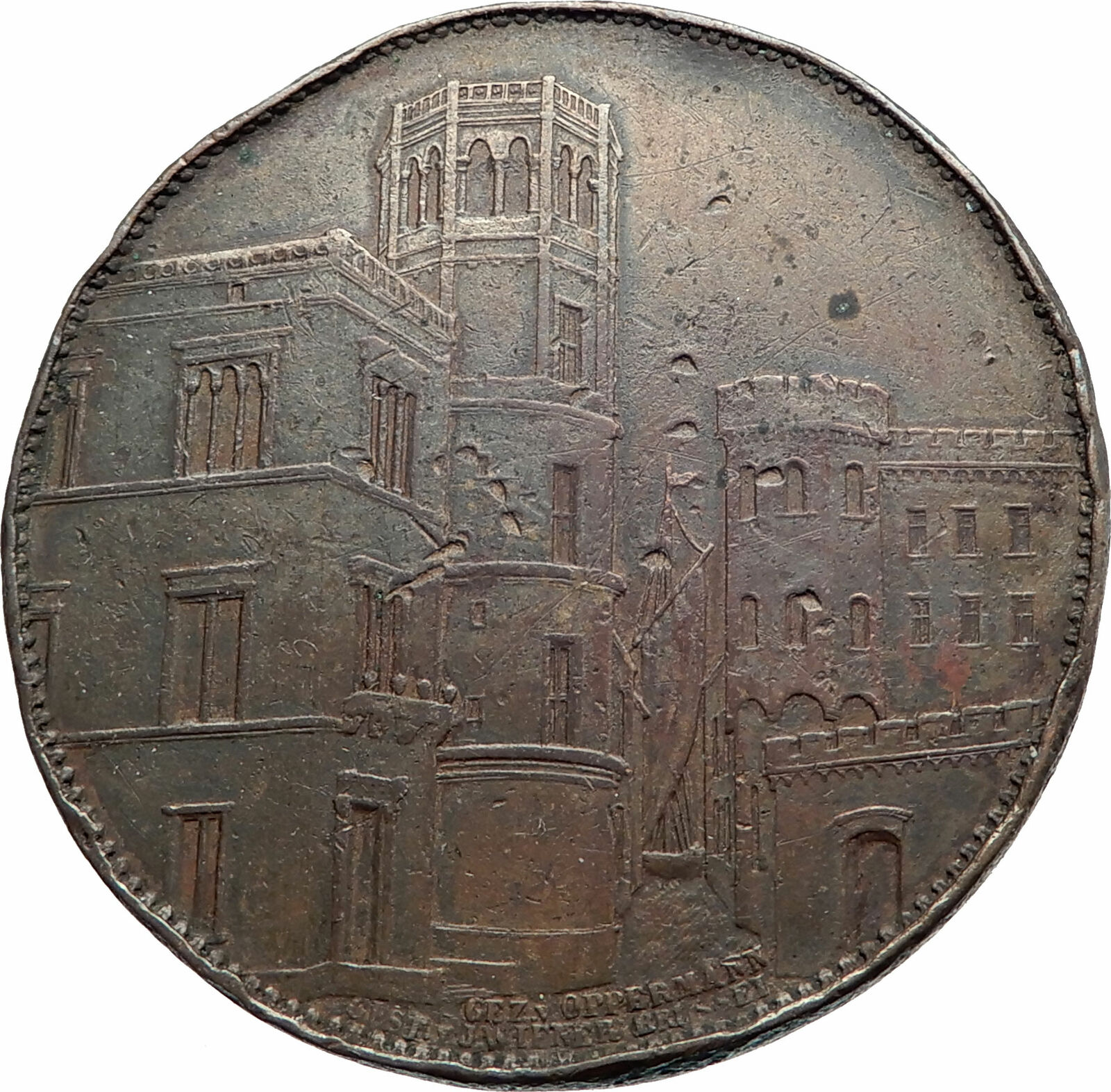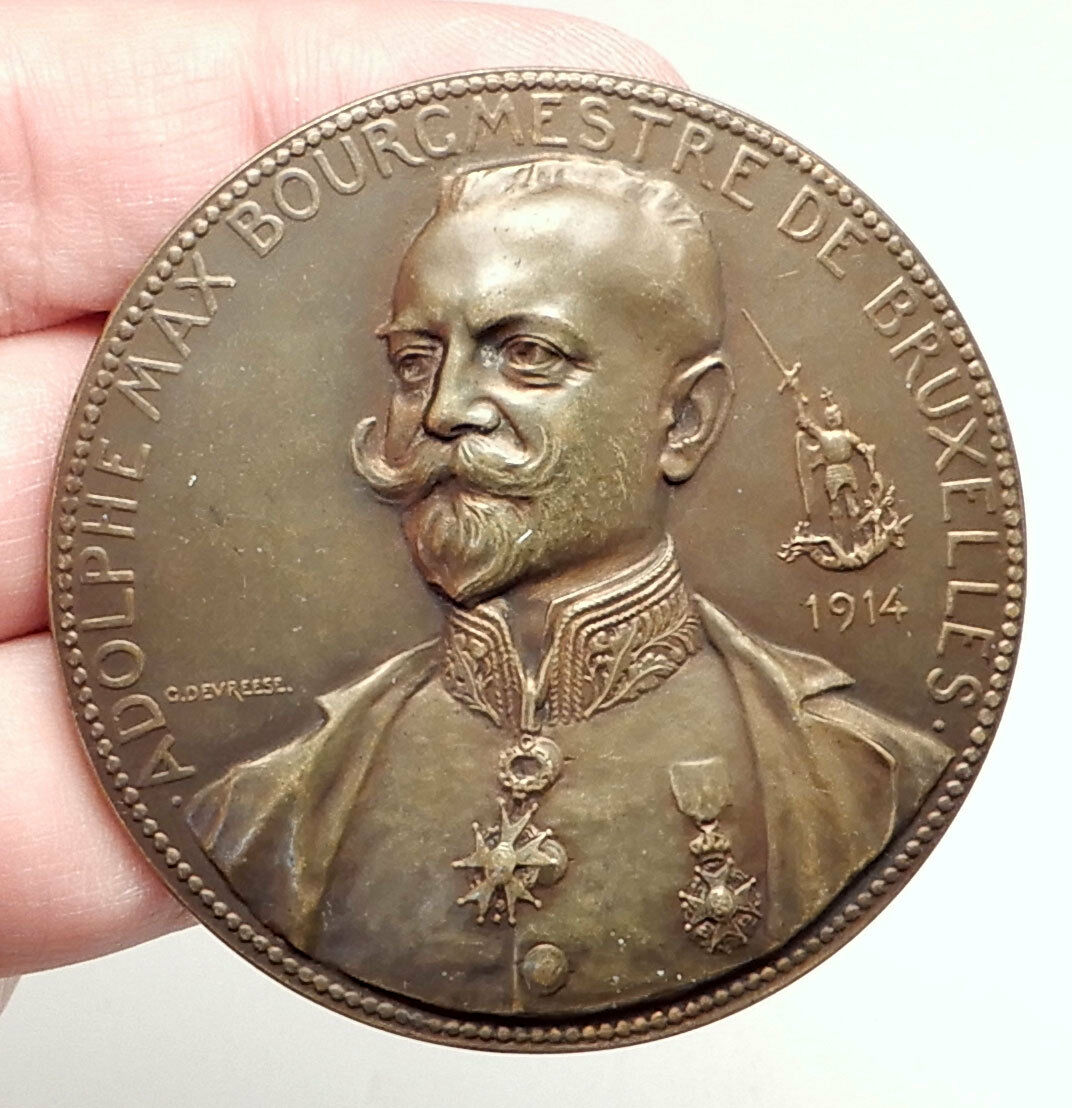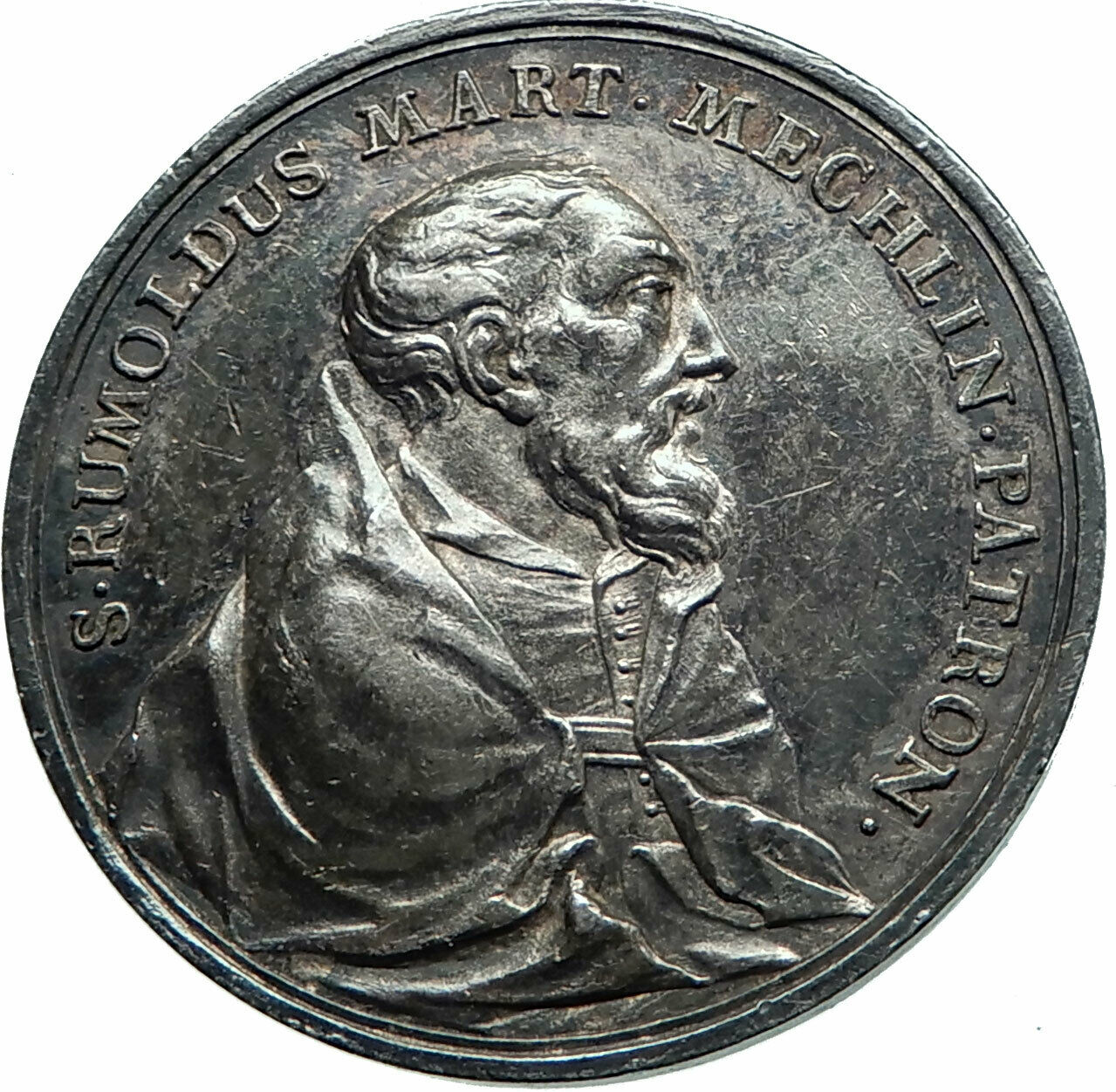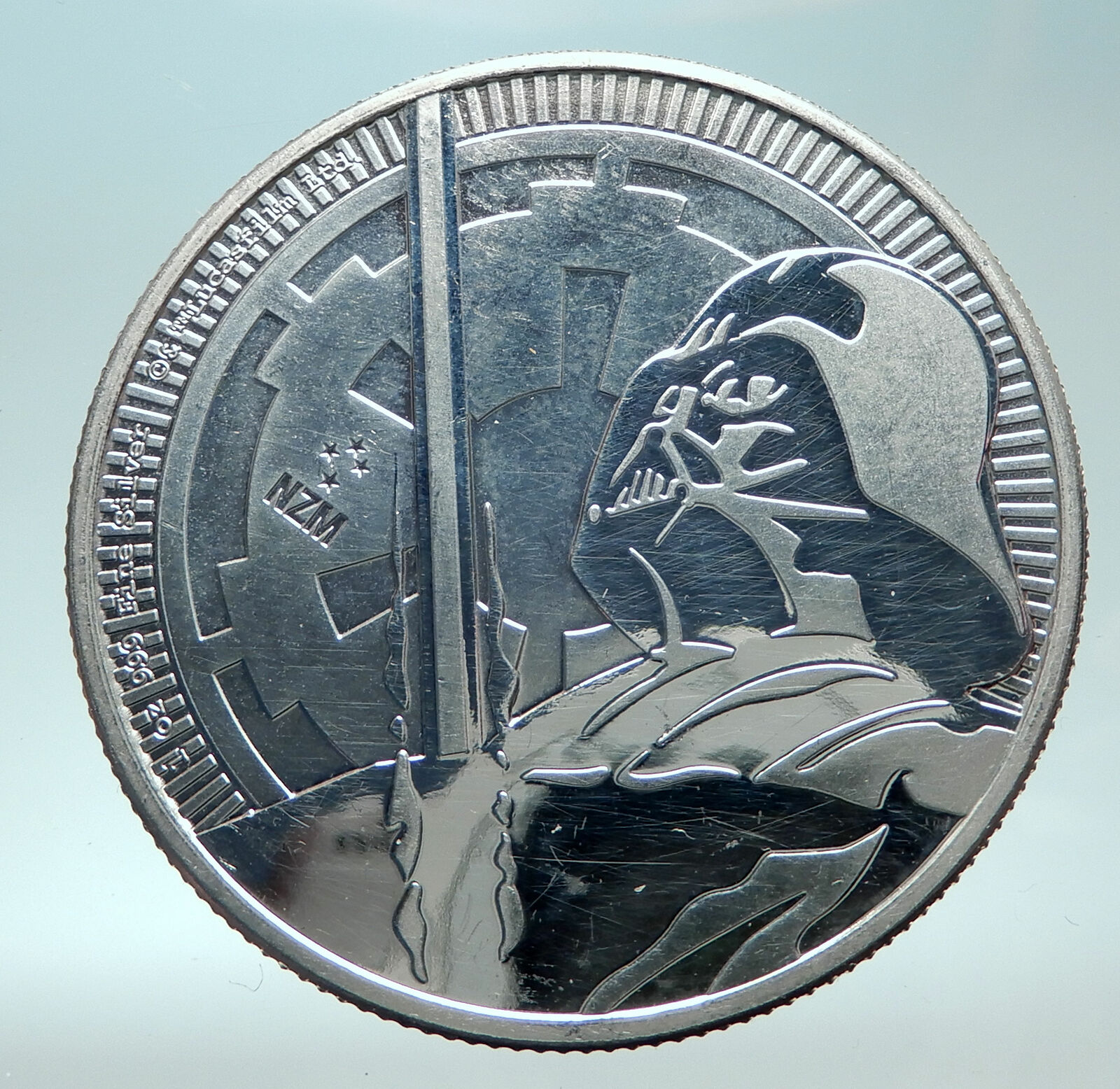|
Germany – Zeppelin Pilot Group
1929 Silver Medal 36mm (24.86 grams) 0.900 Silver
ZEPPELIN DER SCHOPFER, ECKENER DER FUHRER, DURR DER ERBAUER, Three pilots facing left.
*1929* I. WELTFAHRT DES LUFTSCHIFFES GRAF ZEPPELIN, Globe surrounded by text.
Edge Lettering:
PRESS. STATTSMUNZE * SILBER 900 FEIN
You are bidding on the exact item pictured, provided with a Certificate of Authenticity and Lifetime Guarantee of Authenticity.
 LZ 127 Graf Zeppelin (Deutsches Luftschiff Zeppelin 127) was a German passenger-carrying, hydrogen-filled rigid airship that flew from 1928 to 1937. It offered the first commercial transatlantic passenger flight service. Named after the German airship pioneer Ferdinand von Zeppelin, a count (Graf) in the German nobility, it was conceived and operated by Dr Hugo Eckener, the chairman of Luftschiffbau Zeppelin. LZ 127 Graf Zeppelin (Deutsches Luftschiff Zeppelin 127) was a German passenger-carrying, hydrogen-filled rigid airship that flew from 1928 to 1937. It offered the first commercial transatlantic passenger flight service. Named after the German airship pioneer Ferdinand von Zeppelin, a count (Graf) in the German nobility, it was conceived and operated by Dr Hugo Eckener, the chairman of Luftschiffbau Zeppelin.
Graf Zeppelin made 590 flights totalling almost 1.7 million kilometres (over 1 million miles). It was operated by a crew of 36, and could carry 24 passengers. It was the longest and largest airship in the world when it was built. It made the first circumnavigation of the world by airship, and the first nonstop crossing of the Pacific Ocean by air; its range was enhanced by its use of Blau gas as a fuel. It was built using funds raised by public subscription and from the German government, and its operating costs were offset by the sale of special postage stamps to collectors, the support of the newspaper magnate William Randolph Hearst, and cargo and passenger receipts.
After several long flights between 1928 and 1932, including one to the Arctic, Graf Zeppelin provided a commercial passenger and mail service between Germany and Brazil for five years. When the Nazi Party came to power, they used it as a propaganda tool. It was withdrawn from service after the Hindenburg disaster in 1937, and scrapped for military aircraft production in 1940.
 DELAG, acronym for Deutsche Luftschifffahrts-Aktiengesellschaft (German for “German Airship Travel Corporation”), was the world’s first airline to use an aircraft in revenue service. It operated a fleet of zeppelin rigid airships manufactured by the Luftschiffbau Zeppelin Corporation. Its headquarters were located in Frankfurt, Germany. DELAG, acronym for Deutsche Luftschifffahrts-Aktiengesellschaft (German for “German Airship Travel Corporation”), was the world’s first airline to use an aircraft in revenue service. It operated a fleet of zeppelin rigid airships manufactured by the Luftschiffbau Zeppelin Corporation. Its headquarters were located in Frankfurt, Germany.
DELAG was founded on 16 November 1909 as a commercial passenger-carrying offshoot of Zeppelin Luftschiffbau. While the notion did not have the support of Count Ferdinand von Zeppelin, the inventor of the zeppelin, Alfred Colsman, the business manager of Zeppelin Luftschiffbau, gained both funding and promotion for passenger flights from Albert Ballin, the head of the Hamburg America Line. On 19 June 1910, DELAG’s first zeppelin, designated LZ 7 and named Deutschland, performed its first flight. Despite its loss on 28 June 1910, the company launched the improved Deutschland II and the LZ 10 Schwaben during the following year, the latter carrying 1,553 paying passengers during its commercial career. By July 1914, one month prior to the start of the First World War, DELAG’s Zeppelins had transported a total of 34,028 passengers on 1,588 commercial flights; over these trips, the fleet had accumulated 172,535 kilometres across 3,176 hours of flight.
The company’s zeppelins were requisitioned by the German Army for military use during the First World War. Shortly after the conflict, DELAG quickly set about relaunching commercial zeppelin operations, however, it was delivered a major setback when two of its airships were surrendered during 1921 as a part of Germany’s war reparations. During 1925, restrictions imposed on zeppelin construction under the Treaty of Versailles were relaxed by the Allies during 1925, enabling the development of an advanced zeppelin suitable for intercontinental air passenger service. This airship, the LZ 127 Graf Zeppelin, was flown for the first time on 18 September 1928. Its introduction enabled DELAG to launch regular, nonstop, transatlantic flights several years before airplanes would be capable of sufficient range to cross the ocean in either direction without stopping; the airship also performed numerous record-breaking flights, including a successful circumnavigation of the globe. DELAG’s fortunes were greatly influenced by the rise of the Nazis to power in Germany during 1933. During 1935, the rival company Deutsche Zeppelin-Reederei (DZR) was established with state sponsorship, and political interference led to Zeppelin Luftschiffbau being unable to continue operating DELAG.
  Germany, officially the Federal Republic of Germany is a federal parliamentary republic in western-central Europe. It includes 16 constituent states and covers an area of 357,021 square kilometres (137,847 sq mi) with a largely temperate seasonal climate. Its capital and largest city is Berlin. With 81 million inhabitants, Germany is the most populous member state in the European Union. After the United States, it is the second most popular migration destination in the world. Germany, officially the Federal Republic of Germany is a federal parliamentary republic in western-central Europe. It includes 16 constituent states and covers an area of 357,021 square kilometres (137,847 sq mi) with a largely temperate seasonal climate. Its capital and largest city is Berlin. With 81 million inhabitants, Germany is the most populous member state in the European Union. After the United States, it is the second most popular migration destination in the world.
Various Germanic tribes have occupied northern Germany since classical antiquity. A region named Germania was documented before 100 CE. During the Migration Period the Germanic tribes expanded southward. Beginning in the 10th century, German territories formed a central part of the Holy Roman Empire. During the 16th century, northern German regions became the centre of the Protestant Reformation.
The rise of Pan-Germanism inside the German Confederation resulted in the unification of most of the German states in 1871 into the Prussian-dominated German Empire. After World War I and the German Revolution of 1918-1919, the Empire was replaced by the parliamentary Weimar Republic. The establishment of the Third Reich in 1933 led to World War II and the Holocaust. After 1945, Germany split into two states, East Germany and West Germany. In 1990, the country was reunified.
 In the 21st century, Germany is a great power and has the world’s fourth-largest economy by nominal GDP, as well as the fifth-largest by PPP. As a global leader in several industrial and technological sectors, it is both the world’s third-largest exporter and importer of goods. Germany is a developed country with a very high standard of living sustained by a skilled and productive society. It upholds a social security and universal health care system, environmental protection and a tuition free university education. In the 21st century, Germany is a great power and has the world’s fourth-largest economy by nominal GDP, as well as the fifth-largest by PPP. As a global leader in several industrial and technological sectors, it is both the world’s third-largest exporter and importer of goods. Germany is a developed country with a very high standard of living sustained by a skilled and productive society. It upholds a social security and universal health care system, environmental protection and a tuition free university education.
Germany was a founding member of the European Union in 1993. It is part of the Schengen Area, and became a co-founder of the Eurozone in 1999. Germany is a member of the United Nations, NATO, the G8, the G20, and the OECD. The national military expenditure is the 9th highest in the world. Known for its rich cultural history, Germany has been continuously the home of influential artists, philosophers, musicians, sportsmen, entrepreneurs, scientists and inventors.
|





 LZ 127 Graf Zeppelin (Deutsches Luftschiff Zeppelin 127) was a German passenger-carrying, hydrogen-filled rigid airship that flew from 1928 to 1937. It offered the first commercial transatlantic passenger flight service. Named after the German airship pioneer Ferdinand von Zeppelin, a count (Graf) in the German nobility, it was conceived and operated by Dr Hugo Eckener, the chairman of Luftschiffbau Zeppelin.
LZ 127 Graf Zeppelin (Deutsches Luftschiff Zeppelin 127) was a German passenger-carrying, hydrogen-filled rigid airship that flew from 1928 to 1937. It offered the first commercial transatlantic passenger flight service. Named after the German airship pioneer Ferdinand von Zeppelin, a count (Graf) in the German nobility, it was conceived and operated by Dr Hugo Eckener, the chairman of Luftschiffbau Zeppelin.  DELAG, acronym for Deutsche Luftschifffahrts-Aktiengesellschaft (German for “German Airship Travel Corporation”), was the world’s first airline to use an aircraft in revenue service. It operated a fleet of zeppelin rigid airships manufactured by the Luftschiffbau Zeppelin Corporation. Its headquarters were located in Frankfurt, Germany.
DELAG, acronym for Deutsche Luftschifffahrts-Aktiengesellschaft (German for “German Airship Travel Corporation”), was the world’s first airline to use an aircraft in revenue service. It operated a fleet of zeppelin rigid airships manufactured by the Luftschiffbau Zeppelin Corporation. Its headquarters were located in Frankfurt, Germany. 
 Germany, officially the Federal Republic of Germany is a federal parliamentary republic in western-central Europe. It includes 16 constituent states and covers an area of 357,021 square kilometres (137,847 sq mi) with a largely temperate seasonal climate. Its capital and largest city is Berlin. With 81 million inhabitants, Germany is the most populous member state in the European Union. After the United States, it is the second most popular migration destination in the world.
Germany, officially the Federal Republic of Germany is a federal parliamentary republic in western-central Europe. It includes 16 constituent states and covers an area of 357,021 square kilometres (137,847 sq mi) with a largely temperate seasonal climate. Its capital and largest city is Berlin. With 81 million inhabitants, Germany is the most populous member state in the European Union. After the United States, it is the second most popular migration destination in the world. In the 21st century, Germany is a great power and has the world’s fourth-largest economy by nominal GDP, as well as the fifth-largest by PPP. As a global leader in several industrial and technological sectors, it is both the world’s third-largest exporter and importer of goods. Germany is a developed country with a very high standard of living sustained by a skilled and productive society. It upholds a social security and universal health care system, environmental protection and a tuition free university education.
In the 21st century, Germany is a great power and has the world’s fourth-largest economy by nominal GDP, as well as the fifth-largest by PPP. As a global leader in several industrial and technological sectors, it is both the world’s third-largest exporter and importer of goods. Germany is a developed country with a very high standard of living sustained by a skilled and productive society. It upholds a social security and universal health care system, environmental protection and a tuition free university education.




